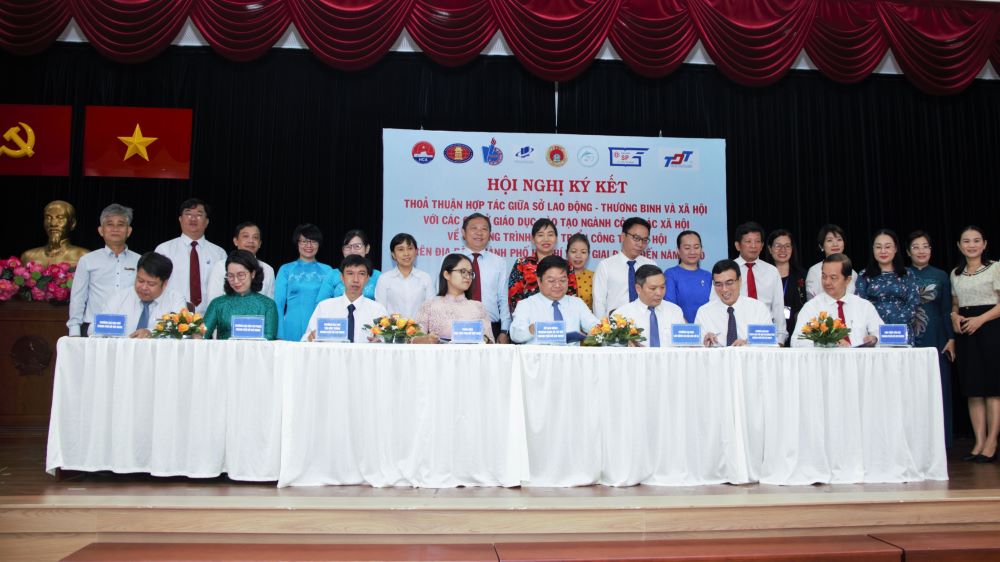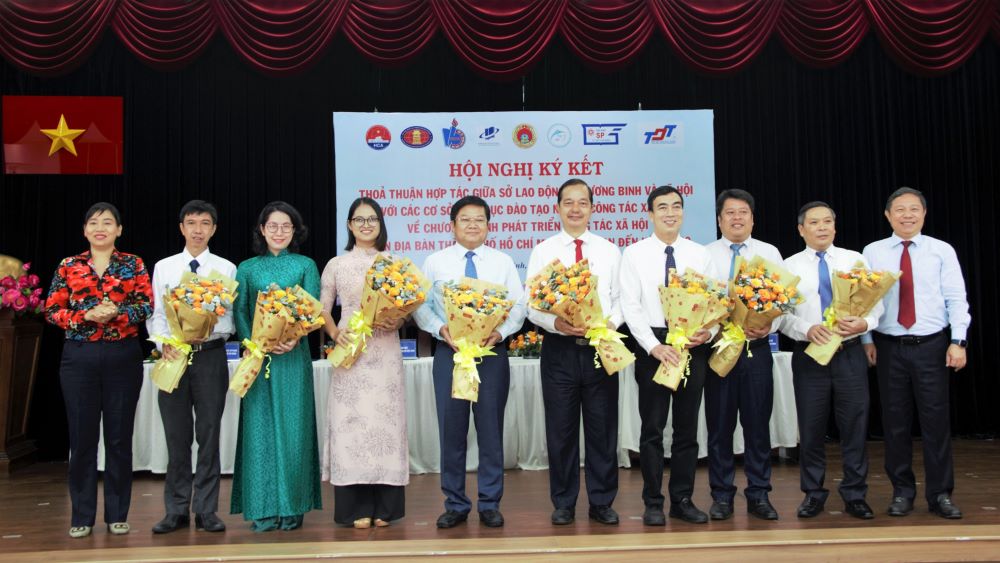On November 21, 2023, the Ho Chi Minh City Department of Labour, Invalids and Social Affairs (DOLISA) collaborated with Ton Duc Thang University (TDTU), the City’s Cadre Academy, University of Labour and Social Affairs (Branch 2), Ho Chi Minh City University of Social Sciences and Humanities, The Branch of Vietnam Women's Academy, Ho Chi Minh City University of Education, and Ho Chi Minh City Open University to sign a cooperation agreement between DOLISA and these educational institutions on the Social Work Development Program in the city until 2030.
At the signing ceremony, there were Mr. Duong Anh Duc - Vice Chairman of the Ho Chi Minh City People’s Committee and Head of the Steering Committee for the implementation of the City's Social Work Development Program; Mr. Le Van Thinh - Secretary of the Party Committee, Director of the Ho Chi Minh City Department of Labour, Invalids and Social Affairs; and representatives of the leadership from various universities and academies participating in the signing.
From TDTU, there were Dr. Vo Hoang Duy - Vice President; Mr. Tang Khac Quy - Director of the Center of Enterprise Cooperation and Alumni; and the leaders of the Faculty of Social Sciences and Humanities and the Social Work Department who witnessed the signing ceremony.
The signing ceremony of this cooperation agreement aims to implement Decision No. 112/QĐ-TTg dated January 22, 2021, issued by the Prime Minister approving the Social Work Development Program for the period 2021 - 2030; Decision No. 1070/QĐ-LĐTBXH dated September 27, 2021, issued by the Ministry of Labour - Invalids and Social Affairs approving the overall plan for implementing the Social Work Development Program for the period 2021 - 2025; and Decision No. 3359/QĐ-UBND dated October 4, 2022, issued by the Ho Chi Minh City People’s Committee approving the plan for implementing the Social Work Development Program in the city until 2030.
The program is implemented with the following objectives: (i) to continue to enhance the development of social work in the city, adapting to the economic and social development conditions in each stage; (ii) to ensure the increased awareness of the entire society regarding social work; (iii) to build a sufficient number of qualified employees and social work collaborators, linked with the development of a system providing social work services at various levels. This contributes to the establishment of an advanced social welfare system in the city.



